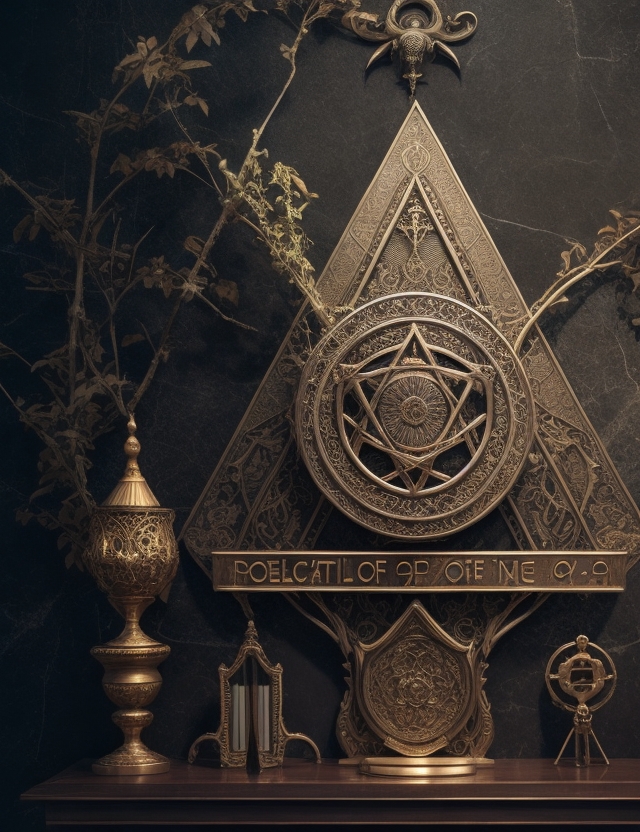The term “occult” refers to a broad and often mysterious category of beliefs, practices, and phenomena that are typically considered supernatural, mystical, or beyond the realm of conventional understanding. The word “occult” itself comes from the Latin word “occultus,” which means “hidden” or “secret.” Occultism encompasses a wide range of topics and interests, and it has been a part of human history and culture for centuries. Here are some key aspects of the occult.
Beliefs and Practices. Occultism involves various beliefs and practices that are not part of mainstream religions or scientific understanding. These may include astrology, alchemy, divination (e.g., tarot reading, scrying, or palmistry), numerology, and various forms of magic and ritual.
Esoteric Knowledge. Occultists often seek esoteric knowledge or hidden wisdom that is believed to provide insight into the mysteries of the universe, human existence, and the nature of reality. This knowledge is thought to be accessible only to those who are initiated into occult traditions.
Spiritualism. Some forms of occultism involve communication with spiritual beings, such as angels, demons, or other supernatural entities. This can be done through mediums, séances, or other rituals.
Symbolism. Occult practices often rely on symbols and sigils that are believed to have special meanings and powers. These symbols can be found in various occult texts, rituals, and artefacts.
Hermeticism. Hermeticism is a philosophical and esoteric tradition that is closely related to the occult. It emphasizes the idea of “as above, so below” and explores the interconnectedness of the macrocosm (the universe) and the microcosm (the individual).
New Age Movement. In the 20th century, the New Age movement incorporated many occult beliefs and practices, blending them with elements of Eastern spirituality, holistic healing, and self-help.
Controversy and Scepticism. The occult has often been viewed with scepticism and suspicion by mainstream religious and scientific communities. Critics argue that many occult practices lack empirical evidence and may involve fraud or self-deception.
Pop Culture. Occult themes and symbols have frequently appeared in literature, art, music, and popular culture. For example, the occult has been a source of inspiration for various artists, writers, and musicians.
It’s important to note that the occult is not a single, unified system but rather a diverse and eclectic collection of beliefs and practices. People who identify as occultists may have varying beliefs and engage in different practices, depending on their interests and traditions. The occult continues to be a subject of fascination and study for many individuals, both for its historical significance and its enduring influence on culture and spirituality.
